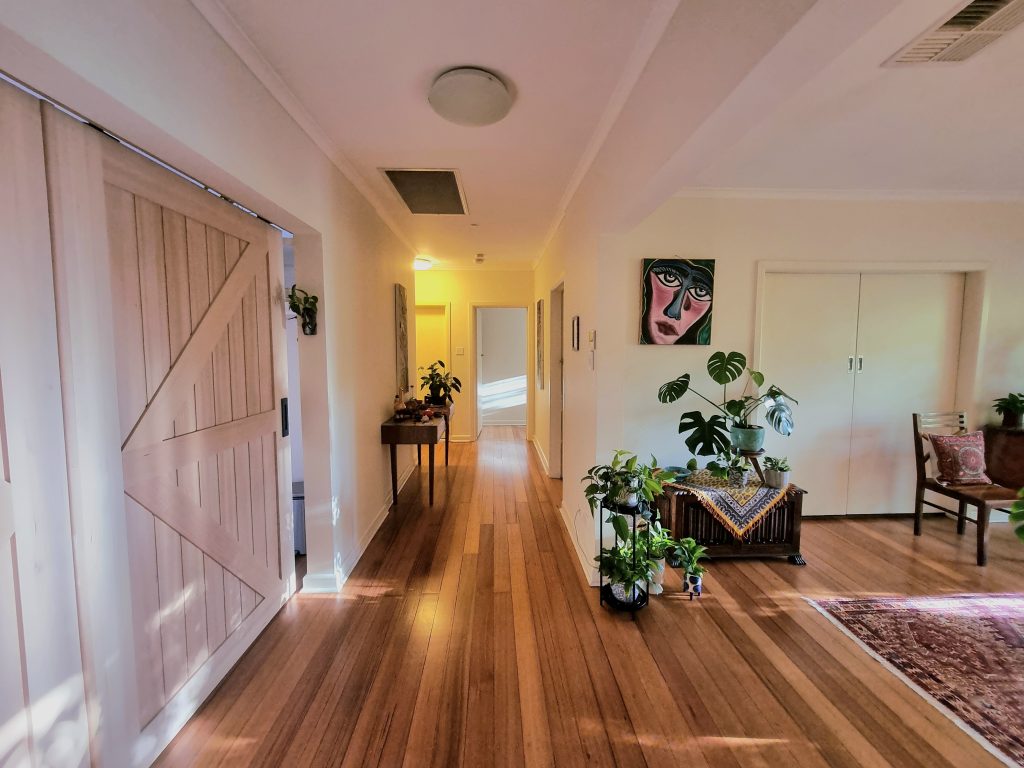“I want to have the best psychologist in Melbourne”
Sometimes the best first step is simply to pick up the phone and have a conversation — no pressure, just a chance to connect and see if this feels like the right space for you.
In the world of mental health, the role of the psychotherapist is often misunderstood. Many people come to therapy hoping to find someone who will diagnose, offer tools, and fix what feels broken. But even the idea of being ‘broken’ is a metaphor — and one that deserves time, space, and care to explore. Who first called it broken? Was it you, or someone close to you? A parent, a teacher, a partner? Whose words are you using when you describe yourself this way? Often, we speak as if we fully know ourselves — but our language, the way we think and talk about who we are, was shaped long before we had the chance to choose it. We were born into language, into a world full of expectations and unspoken rules. In therapy, we begin to trace these threads. And as we do, the meaning of ‘broken’ can begin to shift — revealing something far more complex, and more human, than a simple problem to be fixed.
In therapy, you’re not seen as a puzzle to be fixed, but as a person whose suffering is expressed through words — a speaking being with a story to tell. In this post, I’d like to share what it means to begin therapy together here in Melbourne. This isn’t about picking the best psychologist Melbourne like choosing a product off a shelf. It’s about finding a space where you can be truly listened to — where your words are held in confidence, and where there’s time to speak freely, without pressure for quick fixes.
When to See a Psychotherapist? When You Feel You Need to Talk.
The question of when to see a therapist in Melbourne is itself fraught with the fantasy as if there is an objective or universal threshold: when symptoms become unbearable or when suffering reaches a measurable peak. However, psychoanalysis teaches us that the person does not necessarily seek therapy to ‘feel better’ but often because a private question has emerged, which points to what has been causing suffering: What is happening to me? Why do I find myself in the same impasses, the same repetitions?

You might consider starting therapy if you’re feeling anxious, low or stuck, struggling in your relationships, processing past trauma, or facing a sense of confusion about life or yourself. These are some of the common reasons people reach out for support in Melbourne and they’re all valid places to begin.
— Bita Riazati
Why People Come to See Me in Melbourne
People often come to see me when something in life feels difficult to carry alone. It might be anxiety that won’t go away, a feeling of sadness or emptiness, unresolved grief, relationship struggles, or a general sense of being lost or stuck. Sometimes, there’s no clear reason — just a quiet feeling that something isn’t quite right.
These feelings aren’t always problems to be solved, but messages worth listening to. Psychoanalytic therapy offers a space where you can speak freely and gradually make sense of what feels confusing, painful, or unresolved. Whether you’re going through a life transition, facing old patterns that repeat, or carrying something that hasn’t yet found its words, this work invites you to speak — at your own pace — and to be heard.
You don’t need to have everything figured out before beginning. We start from wherever you are.
Misconceptions About Therapy in Melbourne
One of the common misconceptions that can hold people back from starting therapy is the idea that psychologists have ready-made tools or quick solutions to fix a problem. While some forms of therapy may focus on symptom relief, psychoanalytic work takes a different path. It isn’t about applying coping strategies from a toolbox. This is about creating a space where you can speak, be listened to deeply, and begin to make sense of your suffering in your own words.
Therapy isn’t about getting rid of our pain, our loss or our past, but about relating to it differently. Often, the symptoms that bring someone to therapy are anxiety, sadness, confusion, signalling that something meaningful is trying to speak. In our sessions, we work together to follow those threads, allowing something new to emerge over time, something that belongs uniquely to you.
How Do I Know If I’ve The “Best” Psychologist in Melbourne? It’s By Talking In a Session.
Every therapist works a little differently because we’re human too, and therapy is a deeply personal space. Finding the right psychologist for you isn’t just about qualifications or titles; it’s about whether you feel there’s something you’d like to talk about with me. It can take time to feel comfortable, and there’s no set number of sessions or fixed path. It’s a process shaped by you. Often, the best way to begin is simply with one session and we can take it from there, at your pace.
In-Person or Online? A Good Setting for Therapy
Living in a vast city like Melbourne, it’s understandable that convenience matters and online therapy can be a helpful option when needed. But it’s also important to consider how the setting shapes the therapeutic experience.
Therapy isn’t just about words; it’s also about presence. We speak from a body, and we listen from a body. Being in the same room allows for a kind of connection that’s difficult to replicate through a screen — a quiet, shared space where something different can unfold. While online sessions are available and can be meaningful in their own way, meeting in person offers a deeper grounding in the therapeutic bond. If it’s possible for you, I encourage beginning in the consulting room where we can sit together, speak freely, and let the work take its time to grow.
Cost & Medicare
In Australia, many psychologists are registered with Medicare, which means you may be eligible for rebates on your sessions. While this can be helpful, it’s worth knowing that Medicare tends to support shorter-term, symptom-focused therapies.
For those interested in psychoanalytic therapy, a private practice setting can offer something different — a space where the pace isn’t dictated by health insurance limits, and where there’s room for a more sustained, in-depth process.
Psychoanalytic work is a longer-term commitment. It often unfolds gradually, and its effects may not always be immediate. But with time, and a regular space to speak, something new can begin to take shape — often where it’s least expected.
Fees & Reduced Rates
Session fees are discussed individually, and I offer a limited number of reduced-fee places for those experiencing financial difficulty, including students and early-career professionals. If you’re unsure about affordability, you’re welcome to get in touch — we can have a conversation and see what might be possible.
Finding the Best “Fit“: We Aren’t Outfits.
The idea of finding the “right fit” in therapy can feel a bit like shopping — as though we’re trying on psychologists like clothes. But therapy is not about picking a perfect match from the shelf. It’s about entering into a conversation, one that unfolds over time and brings unexpected truths to light.
In ancient philosophy, Plato used dialogue — asking and responding, back and forth — as a way of discovering something deeper. Later, Hegel described this as a movement:
Thesis (an idea),
Antithesis (its contradiction),
Synthesis (a new understanding that grows out of the tension).
In psychoanalytic therapy, something similar happens. The dialogue between you and the therapist becomes a space where contradictions can emerge in how we speak, what we desire, what we don’t say, or even what gets repeated without us realising.
This is not a process of fixing or solving, but one of speaking and listening in a way that allows meaning to shift, and something new to come into view.
Seeking Recommendations
Therapy is not like choosing the best restaurant or browsing reviews online. While recommendations might help when selecting a meal or a movie, they don’t quite apply when it comes to something as deeply personal as your inner world, emotional life, and history.
Instead of relying on what others say, it’s often better to pick up the phone and have a conversation together. Therapy is built on a human connection — one that unfolds over time, not instantly. It might take several sessions to feel comfortable, and that’s perfectly okay. In this space, you are welcome to bring whatever is on your mind. There is no set script. You speak, and I listen — not with judgment, but with care, attention, and curiosity.
The Work of Talking and Listening
Each week, as you speak, something begins to take shape — not through advice or quick fixes, but through a process of working things through in your own words. Over time, this fosters a deeper understanding of the forces shaping your life.
As your therapist, I am here to listen — not to insert my own personal story, but to hold a space that’s fully centred on you. Like all therapists, I also have supervision and my own analyst, where I bring what I need to reflect on, so that your session remains yours alone.
You Can Bring the Difficult Feelings
It’s common for people to feel unsure at first — and even to feel strong emotions like frustration, sadness, or anger. That’s part of the work. Therapy is one of the few spaces where those feelings can be brought into the open and spoken about.
While you might feel drawn to read reviews, it’s good to remember that therapy isn’t a product and that each person’s experience is unique. A therapist who may not be “popular” online may in fact be exactly the right person for your particular kind of work. Therapy is not about perfection — no therapist is perfect, just as no parent or person is. It’s about the quality of the bond and the space we create together, with kindness and honesty.
A One-by-One Process
If you’re looking for something more than symptom relief, if you’re seeking to understand the why behind your suffering, then we may enter the terrain of the unconscious. In psychoanalysis, we listen closely to what slips out in speech, to your dreams, and to the moments that surprise even you.
Freud once said, “the ego is not the master in its own house.” Lacan later described the unconscious as something that speaks not always in obvious ways, but in the gaps, contradictions, and patterns that emerge in what we say.
This work can’t be rushed. But if you’re ready to begin, or even unsure, we can start with a conversation.
Am I Ready To Start? We Are Never Ready, Don’t Wait for the Perfect Moment!
We’re rarely ever fully ready and that’s okay. In therapy, we don’t wait for the perfect moment. We begin from wherever you are, with whatever you’re carrying. That’s enough to start. Sometimes it takes many sessions to get comfortable to speak freely in therapy and everyone’s timing is unique and we are here to help. As a therapist we can’t get rid of your anxiety in a conventional sense, but to put the anxiety to work, to speak, for example what more you can say about … (e.g., expect to talk about your activities between sessions too), and to allow something new to emerge through speech, which can at times be challenging. The commitment to speaking every week and returning to sessions and working through what has emerged enables the analytic therapy to continue. What was once a source of discomfort in your life may reduce over time as you find different ways to approach recurring situations.
What Now? We Have a Session to Talk

Choosing a clinical psychologist in Melbourne is not merely about finding the best psychologist Melbourne but since you are here, if you are interested in engaging in therapy with me, one that does not reduce your suffering to mere symptoms but instead sees it as a meaningful formation please reach out for us to talk.
Let’s have a session to talk, book a session with Bita Psychology.
I continue my professional training with the Colorado Analytic Forum (A Forum of IF-EPFCL) and Lacan UK.
